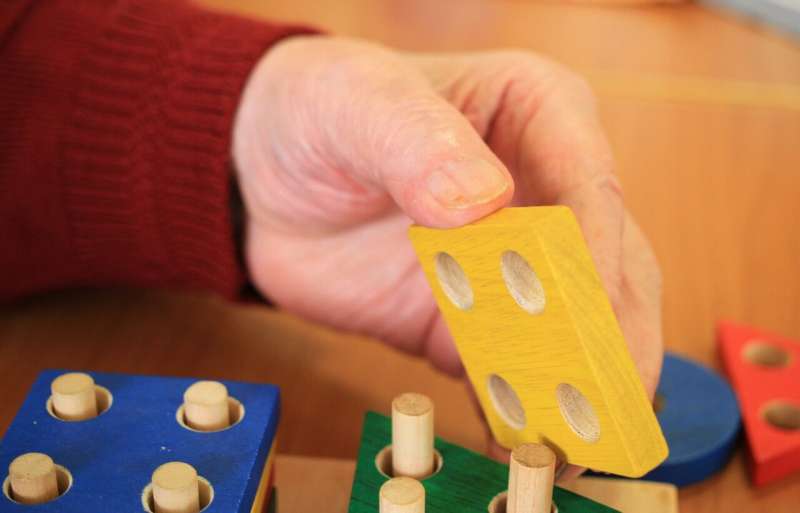
Credit score: Pixabay/CC0 Public Area
New analysis revealed by scientists at Kessler Basis offers crucial insights into the position of sleep in motor studying for people recovering from traumatic mind harm (TBI). The research sheds gentle on how sleep, particularly a brief nap, influences mind exercise related to motor ability enchancment, with implications for optimizing rehabilitation methods.
The article, “Neural mechanisms associated with sleep-dependent enhancement of motor learning after brain injury”, was revealed within the Journal of Sleep Analysis. The research was led by Kessler Basis researchers Anthony H. Lequerica, Ph.D., with extra authors Tien T. Tong, Ph.D., Paige Rusnock, Kai Sucich, Nancy Chiaravalloti, Ph.D., Ekaterina Dobryakova, Ph.D., and Matthew R. Ebben, Ph.D., and Patrick Chau, from Weill Cornell Drugs, New York.
The research concerned 32 people with TBI, randomly assigned to both a sleep or wake group following coaching on a motor process. The sleep group had a 45-minute nap, whereas the wake group remained awake, watching a documentary.
The analysis targeted on the development in efficiency and the neural mechanisms concerned, as measured by useful magnetic resonance imaging (fMRI). Outcomes confirmed that the sleep group exhibited vital features in motor efficiency in comparison with the wake group, with corresponding adjustments in mind exercise that counsel sleep-dependent automatization of the motor process.
“This study highlights the power of sleep, even a short nap, in enhancing motor learning for individuals with brain injury,” stated lead writer Dr. Lequerica, senior analysis scientist within the Middle for Traumatic Mind Harm Analysis and director of the Mind Harm and Behavioral Outcomes Laboratory.
“Our fMRI data suggest that motor tasks practiced before a nap become more automated during sleep. By decreasing activation in key brain regions, such as the anterior cingulate and cerebellum, napping may facilitate a smoother, less effortful retrieval of learned motor sequences.”
This technique of automatization might be important for serving to sufferers regain useful talents extra successfully. The analysis outcomes spotlight the potential for incorporating napping protocols into rehabilitation packages to maximise the results of motor ability coaching for people with mind accidents.
Extra data:
Anthony H. Lequerica et al, Neural mechanisms related to sleep‐dependent enhancement of motor studying after mind harm, Journal of Sleep Analysis (2024). DOI: 10.1111/jsr.14370
Offered by
Kessler Basis
Quotation:
Mind harm rehabilitation research reveals neural mechanisms of sleep-dependent motor studying (2024, November 18)
retrieved 18 November 2024
from https://medicalxpress.com/information/2024-11-brain-injury-reveals-neural-mechanisms.html
This doc is topic to copyright. Other than any truthful dealing for the aim of personal research or analysis, no
half could also be reproduced with out the written permission. The content material is offered for data functions solely.




